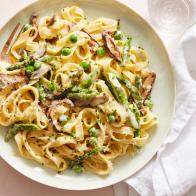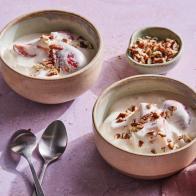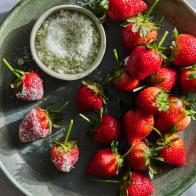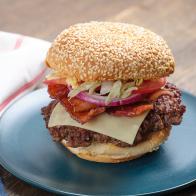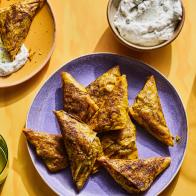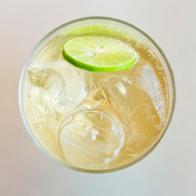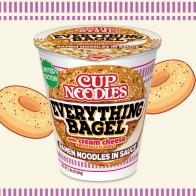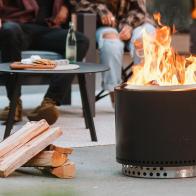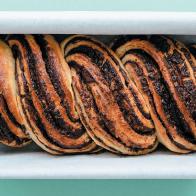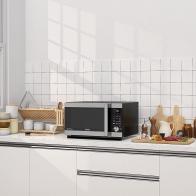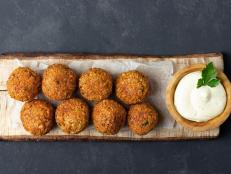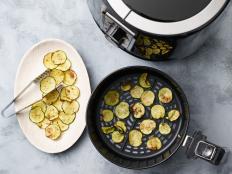How To Hydrate Like a Personal Trainer
These recs go beyond your regular H2O.

AzmanJaka/iStock
Keep in mind: Price and stock could change after publish date, and we may make money from these links.
Hydration — a word that sparks an instant thirst and panic-laden, “Where is my water bottle?!” reflex. (I lost count on how many glasses of H2O I chugged while writing this…) Around the clock swigs are a given these days, thanks to tools like hydration apps and Bluetooth-synced smart bottles, however keeping your whistle wet to rock your workout is a different story.
The average adult is made up of 60 percent water — the more muscular the body, the more water it contains to support temperature regulation and digestion. And when we up the exercise ante, our hydration demands increase in order to maximize performance, minimize injury and speed up recovery.
Funky performance beverages seem to be on the rise these days to support the fitness-obsessed, ranging from BCAAs and bone broth to pickle juice and breast milk. (Yes, seriously. New York Magazine has gone so far to call Mother Nature’s Dairy Queen the energy drink of the future.) So what’s the deal? Is good old water enough to keep us hydrated or should we be supplementing? And what about our favorite sport drinks — are they totally off-limits? (I mean, come on, Cool Blue has and always will be a MVP in my book…)
We tapped into five personal trainers on their pre- and post-sweat sesh sips of choice. Here’s what you should fill up on — and dump out.
Georgette Naber (CF-L1, Founder + Head Nutrition Coach of Fuel Your Fitness)
Push harder and feel good doing it by taking a swig. “Even a 1 percent level of dehydration can lead to a 10 percent decrement in performance,” warns Naber. A not-so-basic basics lover, Naber swears by a good night’s sleep, “plain ol’ water” and, on longer training days, BCAAs. (Core ABC is her go-to for endurance and recovery support.)
So how much should we be gulping down? “Take your bodyweight, divide it by two then add 15,” Naber suggests. “That’s how many ounces of water you should be drinking a day, plus another 17 to 20 oz. for every hour of exercise.” A recovery shake is key post-sweat, too, she says. “During high-intensity training, our cortisol rises (which is our ‘fight-or-flight’ hormone). Having a carb immediately post-workout actually shuts off that response and puts your body in a position in which it can start recovering.”
Doug Corbett (NASM CPT, FMS, NS, PES, Fitness Nutrition Coach)
Corbett turns to the occasional cup of Jo to get his engines going and swears by adding 1/2 to 3/4 teaspoons of Redmond Real Salt to his water pre- and post-workout. “I’ve noticed a huge improvement in strength and endurance,” he says. "As an added bonus, my food cravings have completely gone away. It wasn’t the pizza I was craving, it was the lack of salt in my body and my body couldn’t communicate it.”
Don’t let dehydration rob you of your energy, warns Corbett. His suggestion: Buy a 40 oz. steel water bottle (like Hydro Flask) and keep it with you throughout the day, gunning to consume two (or more depending on exercise level/bodyweight) of them before hitting the sack.
Lauren Chiarello (Group Fitness Teacher and Trainer, Founder Chi Chi Life)
A hydrating smoothie is Chiarello’s drink of choice pre-workout. "My go-to is coconut water, half of a banana, a handful of kale and/or spinach — plus a tablespoon of almond butter,” she says. Potassium-packed bevs like Chiarello’s (courtesy of the coconut water and banana) keep fluid and electrolyte balanced in the body to ward off muscle cramps.
Shortly after her workout, Chiarello replenishes with Hydrant. “I also recently tried out DRINKmaple! It was super tasty and nutrient-rich.” Both provide a dose of fluids and electrolytes without a ton of sugar.
Prince Brathwaite (NASM CPT, Owner/Coach at Trooper Fitness)
“Nutrients like sodium and other electrolytes and other minerals aid in absorbing and retaining water,” says Brathwaite. “Drinking lots of water without the ability to absorb it will result in it passing right through you.”
Also in his bottle to stoke his sprints and power cleans, “BPI or isopure BCAAs, which may help muscle growth, decrease beast mode soreness, reduces exercise fatigue and helps to prevent muscle catabolism.”
Me, Myself and I: Lauren Seib (NASM CPT, Group Fitness Teacher)
Despite being a self-proclaimed beer despiser, I do have a huge adoration for carbonation. The majority of my daily hydration comes from freshly fizzed seltzer with a generous squeeze of lemon. (Insert my love letter to SodaStream here.)
Also in my refreshing and invigorating repertoire: kombucha, green tea (on repeat throughout the day!) and vegan BCAAs. Although the research is still limited, I have found my nutrient-rich, fermented BFF, kombucha, supports my recovery and relieves workout aches and pains. Green tea keeps me going longer without the crash coffee and sugary pre-workout energizers yield.
Related Links:
